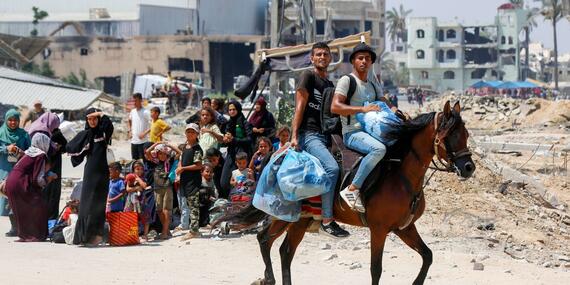Today's top news: Occupied Palestinian Territory

Occupied Palestinian Territory
OCHA says persistent fuel shortages – and the inability to store, allocate or deliver it adequately and in safety – continue to threaten the functioning of vital services across Gaza.
Since October 2023, the Israeli authorities have cut off their 120 megawatt feeder lines' supply for Gaza and forced the shutdown of the local power plant, which produced an additional 70 megawatts.
Fuel is now critically needed to run the back-up generators that power life-saving medical infrastructure and equipment, as well as water production facilities. It is also necessary to keep ambulances, trucks and other vehicles running.
Since the beginning of this month, the UN and our partners have managed to bring about 2.5 million litres of fuel into Gaza.
This is about 100,000 litres per day, or about a quarter of the 400,000 litres required for the most basic humanitarian operations each day.
The Israeli authorities continue to tightly control allocations of incoming fuel, thereby limiting humanitarian operations, especially by local partners.
The UN and humanitarian partners continue to advocate for Israel to permit the allocation of fuel to all key humanitarian organizations, approve additional fuel storage spaces inside Gaza, and allow the entry of fuel from multiple land crossings – including Erez West, which would provide direct access to the north.
